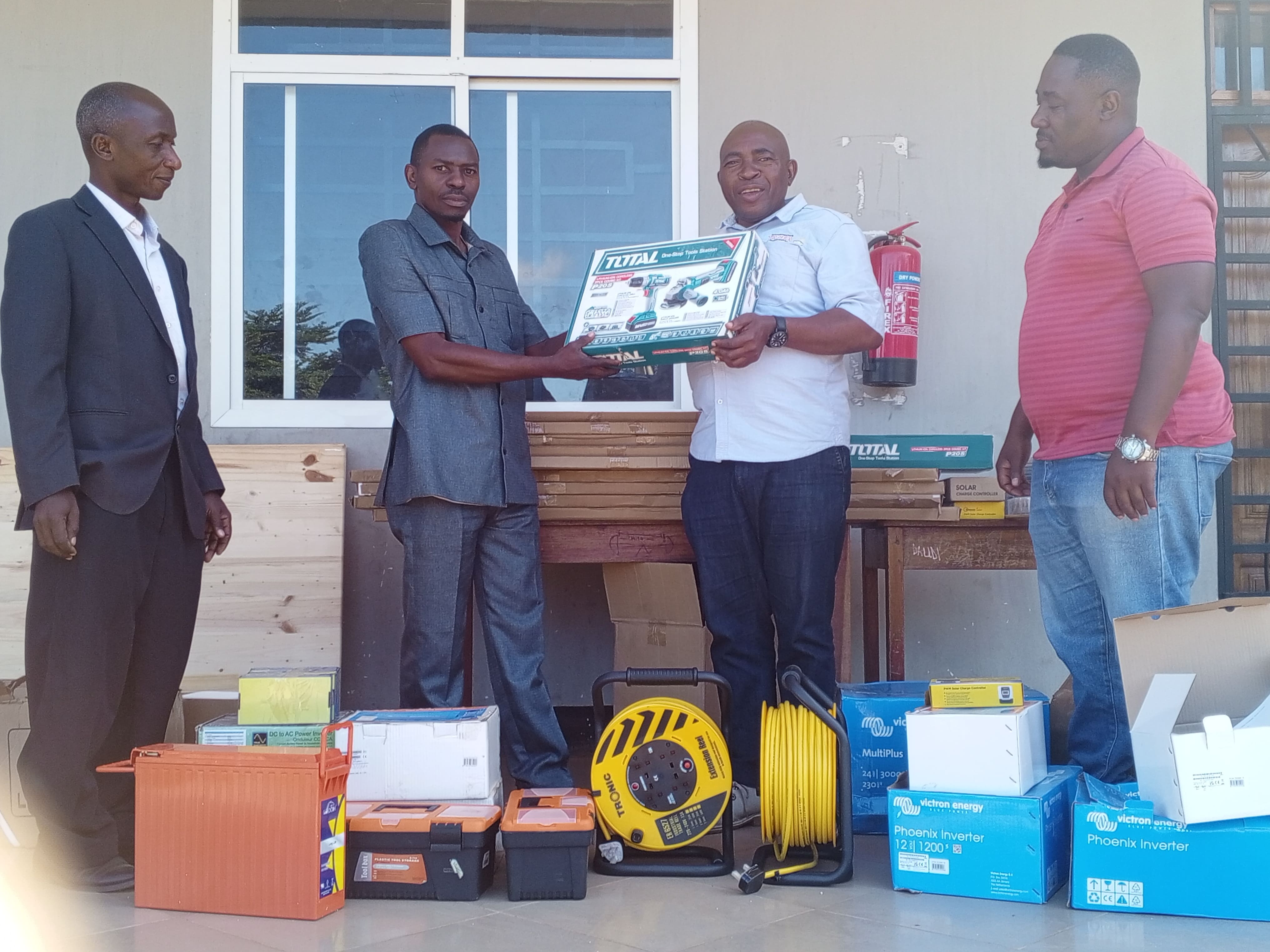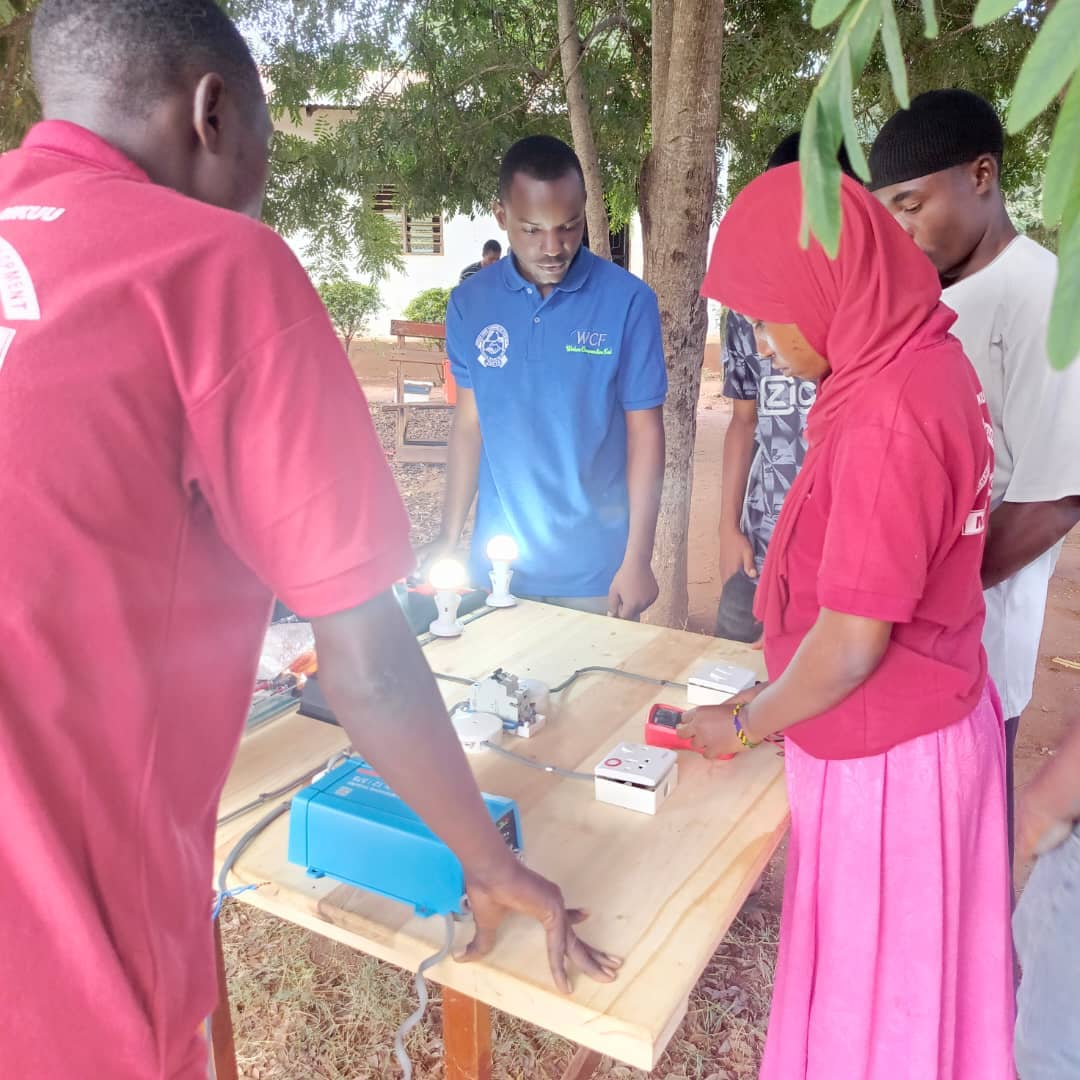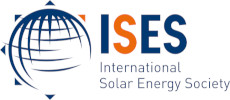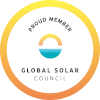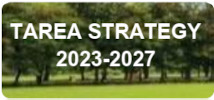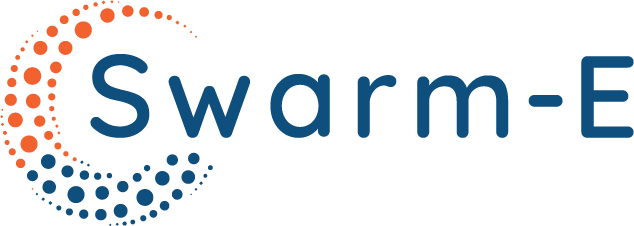TAREA, partners and member organizations implements various projects
-
Advocacy on Net-Metering
Tanzania Renewable Energy Association (TAREA) has received technical assistance from European Union through Investment Climate Reform (ICR) Facility to dialogue with Tanzania Electricity Company on the possibility of operationalization of the Net-Metering Scheme of 2018.
The expected impact is the increased solar photovoltaic business through the opportunity of the rooftop solar system using the utility grid as storage.
The technical assistance runs from 23.08.2021 until 31.03.2022 The initiative goes beyond the deadline of the ICR. Members contribute to the resources. Corporate Member, Kanisa la Upendo was Kristo Masihi (KIUMA), one of the members who support the TAREA Secretariat in conducting the dialogue.
-
Advocate for Clean Cooking Incentives and Promote Supply of Quality and Efficient Biomass Clean Cooking Solutions
The Tanzania Renewable Energy Association (TAREA), in partnership with SNV–Netherlands Development Organization, is implementing a joint initiative aimed at accelerating the adoption of sustainable clean cooking solutions in Tanzania.
1.0 Advocacy for Tax Incentives on Sustainable Clean Cooking Solutions
Under this component, TAREA and SNV will engage with the Government of Tanzania to advocate for the removal of Value Added Tax (VAT) on sustainable clean cooking solutions based on biomass and electricity. The advocacy efforts are intended to reduce the cost of clean cooking technologies, improve affordability for households and institutions, and support the national transition away from traditional and inefficient cooking fuels.
2.0 Promotion of the Supply of Quality and Efficient Biomass Cooking Solutions
This component focuses on strengthening the supply side of clean cooking technologies by improving the quality and efficiency of biomass-based solutions. The activity will involve providing targeted training to manufacturers of improved cookstoves—both household and institutional—as well as producers of biomass briquettes. The training will emphasize compliance with national and internationally recognized standards, quality assurance, and performance requirements to ensure that the products supplied to the market are safe, efficient, and environmentally sustainable.
The initiative commenced in December 2025 and contributes to national efforts to enhance access to clean cooking solutions, promote public health, reduce environmental degradation, and support sustainable energy development in mainland Tanzania.
-
Biomass for Cooking Policy Dialogue
TAREA has been subcontracted by SNV Netherlands Development Organization to implement the assignment of the biomass policy dialogue. The assignment duration will be from March 2020 to June 2022.
The objectives that will be implemented in the assignment are:
1.0 Define the lead government authority for the Cooking Sector and advocate for the improved cookstove policy statement
2.0 Advocate for the policy statement on biomass cooking technologies and strategy document (Cooking Energy Action Plan)
3.0 Working with PO-RALG and VPO to facilitate gender analysis and gender action plan as a gender mainstreaming strategy
4.0 Participate in the enforcement of improved cookstove standards
5.0 Ensure ICS data is incorporated into the next REA Energy Situational Analysis Report
6.0 Dialogue with the Ministry of Health to institute data collection on the indoor air pollution
7.0 Establish Clean Cooking Alliance Chapter for Tanzania
8.0 To advocate with Vice-President's Office to prioritize biomass for cooking in its financing portfolio and
9.0 Work with the SIDO to enable certification of the biomass fuel and stove of local producers
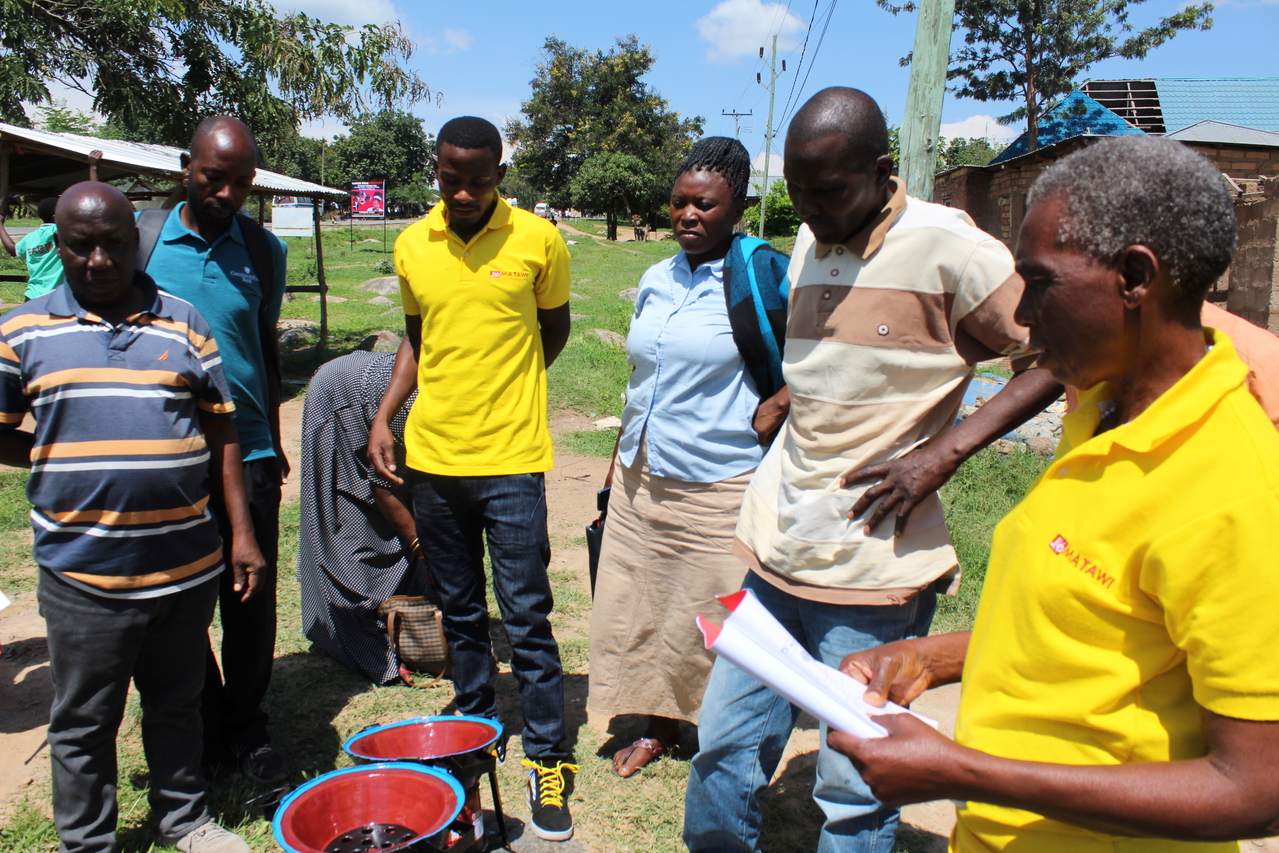 Training Stove Producers on Application of the Biomass Cookstove Standards TZS473:2019
Training Stove Producers on Application of the Biomass Cookstove Standards TZS473:2019 -
Building Institutional Capacity
TAREA has received financial support from USAID through Shell Foundation and GOGLA to implement the project of "building institutional capacity".
The project aims at developing an advocacy plan. The plan is a part of the Strategy 2023-2027. The project also supports the advocacy of the removal of the Excise Duty introduced by the Government of Tanzania in July 2022 on lead-acid batteries.

-
Climate Smart Agriculture
TAREA and the Embassy of the Kingdom of the Netherlands have partnered to implement the activity of Climate Smart Agriculture. The activity will continue the dialogue with the Government of Tanzania to enable the increased adoption of solar photovoltaics for agricultural irrigation.
Start: 1 February 2023
-
Enabling Employability of Young Women in Solar Energy Technology in Masasi District
Tanzania Renewable Energy Association (TAREA) in partnership with Hivos of the Netherlands is implementing a project in Masasi district Tanzania on Enabling the Employability of Young Women in Solar Technology.
The project will benefit 20 girls.
The project is implemented to:
- Increase the participation of women in the solar technology
- Enable livelihood of the rural off-grid areas and
- Increase sustainable access to solar photovoltaic technology.
The first phase of the project runs from May 2021 to May 2022.
The project has an innovative idea of enabling trainees to access self-employment by providing girls with start-up tools and entrepreneurship mentorship.
The second phase of the project will be run from June to August 2022
The second phase will be used for the refresher course for the trainees, to raise awareness in the community on the potential of girls in working in the technical trades and disseminate the training methodology.
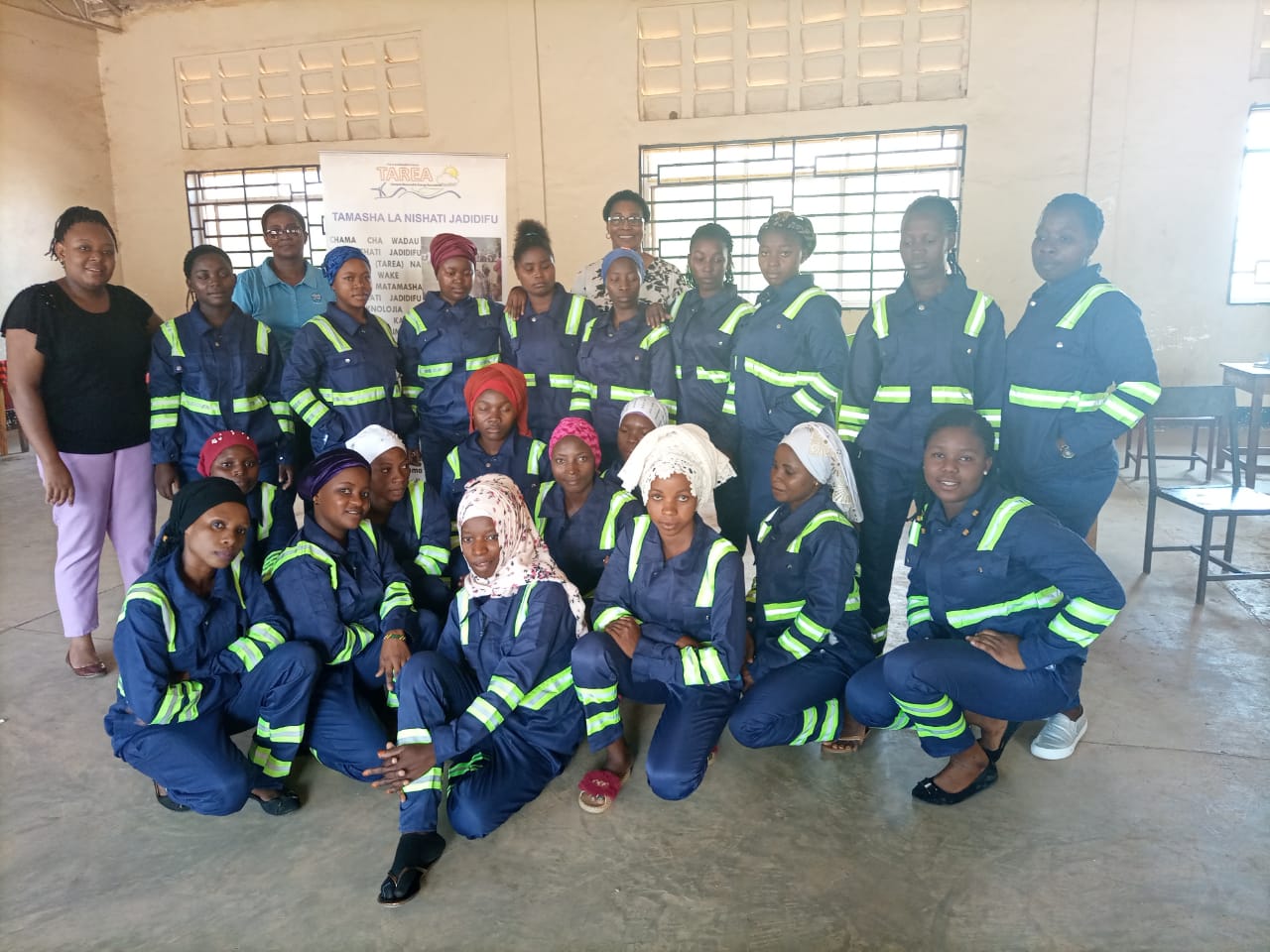
Girls trained by TAREA in Masasi District in the Mtwara region
In the recruitment process, 71 girls showed interest in attending training.
More information is available from TAREA Secretariat.
-
Enabling Safe Motherhood at Namatula Health Centre Through Installation of Solar Photovoltaic System
The Tanzania Renewable Energy Association (TAREA) has received financial support from the Federal Government of Germany, through the German Embassy in Dar es Salaam, to support the installation of a solar photovoltaic (PV) system at Namatula Health Centre, Nachingwea District Council in Lindi Region, Tanzania. The project aims to promote safe motherhood by ensuring a reliable and sustainable supply of electricity for maternal and reproductive health services.
The solar PV system will provide continuous power for essential medical equipment, lighting, and cold-chain facilities, thereby improving the quality of healthcare services, particularly during nighttime deliveries and emergency obstetric care. By enhancing energy access at the health facility, the project will contribute to improved maternal and neonatal health outcomes while also demonstrating the role of renewable energy solutions in strengthening rural healthcare infrastructure.
This initiative aligns with national and global efforts to expand access to clean energy, improve healthcare delivery, and support sustainable development in Tanzania.
The Federal Government of Germany provided this financial support during the 2025 financial year as part of its continued commitment to supporting sustainable development initiatives. The funding reflects Germany’s dedication to promoting renewable energy solutions, strengthening healthcare service delivery, and improving maternal and child health outcomes through reliable and clean energy access in Tanzania.
-
Enabling Youth Employment Through Solar Energy
Tanzania Renewable Energy Association (TAREA) has received a grant through the GIZ Program of Employment and Skills for Development in Africa (E4D) to implement the project “Enabling Youth Employment in Solar Energy in Tanzania”. Finance has been co-funded by the Federal Ministry for Economic Cooperation and Development (BMZ) and the European Commission. It is implemented under VET Toolbox II by the E4D programme and the Prime Minister’s Office - Labour, Youth, Employment and persons with Disability (PMO-LYED).
The goal of the project is to enhance the employability and sustainable development of Tanzanian youth (male and female) through capacity building on solar photovoltaic skills and entrepreneurship.
The overall objective of the project is to enable more youth to improve the quality of their livelihoods through working in the solar photovoltaic sub-sector.
The project will work on:
1) Reviewing solar artisan training curriculum
2) Provision of a refresher course for the solar photovoltaic teachers
3) Training of 200 solar photovoltaic artisans
4) Enabling solar artisans' self-employment through internship and provision of basic electricity working tools.
The training will be carried out in Arusha and primarily it will benefit youth from the regions of Manyara, Geita, Simiyu and Shinyanga.
The expected impacts of the project will be:
1) Increased youth and women's employability in green sectors.
2) Increased use of quality solar equipment for the rural population saves money and the environment
3) Reduction in the use of kerosene and wood as an alternative energy source improves the environment, and
4) Reduced youth migrations: rural to urban areas; and country to country
The expected project impacts are:
1) increased youth and women’s employability in green sectors;
2) increased use of quality solar equipment for the rural population saving money and the environment;
3) Reduction in the use of kerosene and wood as an alternative energy source that improves the environment; and
4) Reduced youth migrations; rural to urban areas; and country to country.
Details are in the project brief
-
Improving Quality of Education at Mbondo Secondary School Using Solar Energy
The project will implemented at the Mbondo Secondary School in Nachingwea District, Tanzania. Matekwe Secondary School is off-grid.
The lack of electricity at Mbondo Secondary School has resulted in the following:
- Limited time for studying
No studying is possible after sunset. The lack of quality light is limiting the opportunity for students to study in the evening;
- Limited studying opportunities
Lack of printed learning materials, computer practice). The lack of electricity at the school limits the student’s building interest in studying science subjects as electricity is needed in the laboratory;
- Poor security at the school compound
Students and properties are at risk as the environment is dark at the night. Students have to use candles for lighting, which might cause fire accidents in the dormitories; also, candles cause indoor pollution. Girls are at risk of rape by immoral boys from within the school and village;
- Limited communication.
Teachers have limited use of mobile phones due to the lack of reliable service for mobile recharging.
- Low safety in the dormitories
The project will install 3solar photovoltaic systems to supply electricity for the administration block, classrooms and dormitories for the girls and boys. Further, the project will conduct awareness raising to the community on the potential of solar photovoltaic technology.
The expected long-term project results are:
- Academic performance of the Form IV students at Mbondo Secondary School increased and female students pursuing science studies
- Students live in a safe environment; and
- The community have adopted solar photovoltaic technology.
The project will be concluded by December 2023
-
Installation of Solar Photovoltaic Systems at Matekwe Secondary School
Tanzania Renewable Energy Association (TAREA) has received financial support from the German Federal Minister for Foreign Affairs through the German Embassy to implement the project “Installation of a photovoltaic solar system at the Matekwe Secondary School in Nachingwea, Lindi Region”. The support agreement was signed on 16.11.2023.
The activities of the project will be as follows.
1) Install 3 solar photovoltaic systems
2) Raise awareness of the end-users and
3) Implement the sustainability strategy

-
LIFE Academy Training Programs
Life International Foundation for Ecology (LIFE) Academy of Karlstad, Sweden has been working to build capacities in renewable energy and energy efficiency. TAREA has partnered with LIFE Academy since 2013. TAREA has been supporting LIFE Academy as the local organizer and mentorship.
TAREA has already worked with LIFE Academy in implementing the programs of Wind Power Planning and Use, and Energy Efficiency. Currently, TAREA is supporting LIFE Academy in implementing the following programs:
Global Capacity Development Programme for Renewable Energy 2
Global Capacity Development Programme for Renewable Energy 3
Uganda Renewable Energy Program
Global Capacity Development Programme for Renewable Energy 4
-
Masasi - Enzkreis Partnership Project
Masasi District Council and Masasi Town Council in the Mtwara region have partnered with Enzkreis, in the northwest of Baden-Württemberg, Germany, to promote energy efficiency and access to sustainable modern energy. Masasi District Council, Masasi Town Council and Enzkreis have partnered to promote the use of renewable energy and promote best practices of sanitation. The activities of the partnership consist of the installation of solar photovoltaic systems in the 29 (23 Masasi District Council and 6 Masasi Town Council) dispensaries/health centres and associated 53 staff houses, training of 12 rural solar artisans, conducting technology awareness raising to the beneficiaries (council leaders and villagers), training of the end-users on the best practices in using solar systems, and publication of the project through media and gatherings like Nane-Nane Fair in Lindi, Southern Tanzania.
The above activities were realized in phase I which ended on 31.12.2018. Phase II will be implemented from 1.1.2021 to 31.12.2023
Phase II project will install 23 solar photovoltaic systems at the secondary schools, dispensaries and Masasi District Hospital: training of teachers and village boys on solar photovoltaic technology (installation and maintenance); training of students and medical staff on the best practices in using solar photovoltaic systems; develop teaching materials on the climate change; training of the women at the health centre on the effects of the climate change; establish environment training centre; conduct climate exhibition; tree planting at Mbuyuni district hospital; and public awareness on the impacts of the greenhouse gases.
The project is financed by the German Federal Ministry for Economic Cooperation and Development through Engagement Global Program.
TAREA is the third partner responsible for the provision of technical support so that the best results are achieved. The project activities will consist of
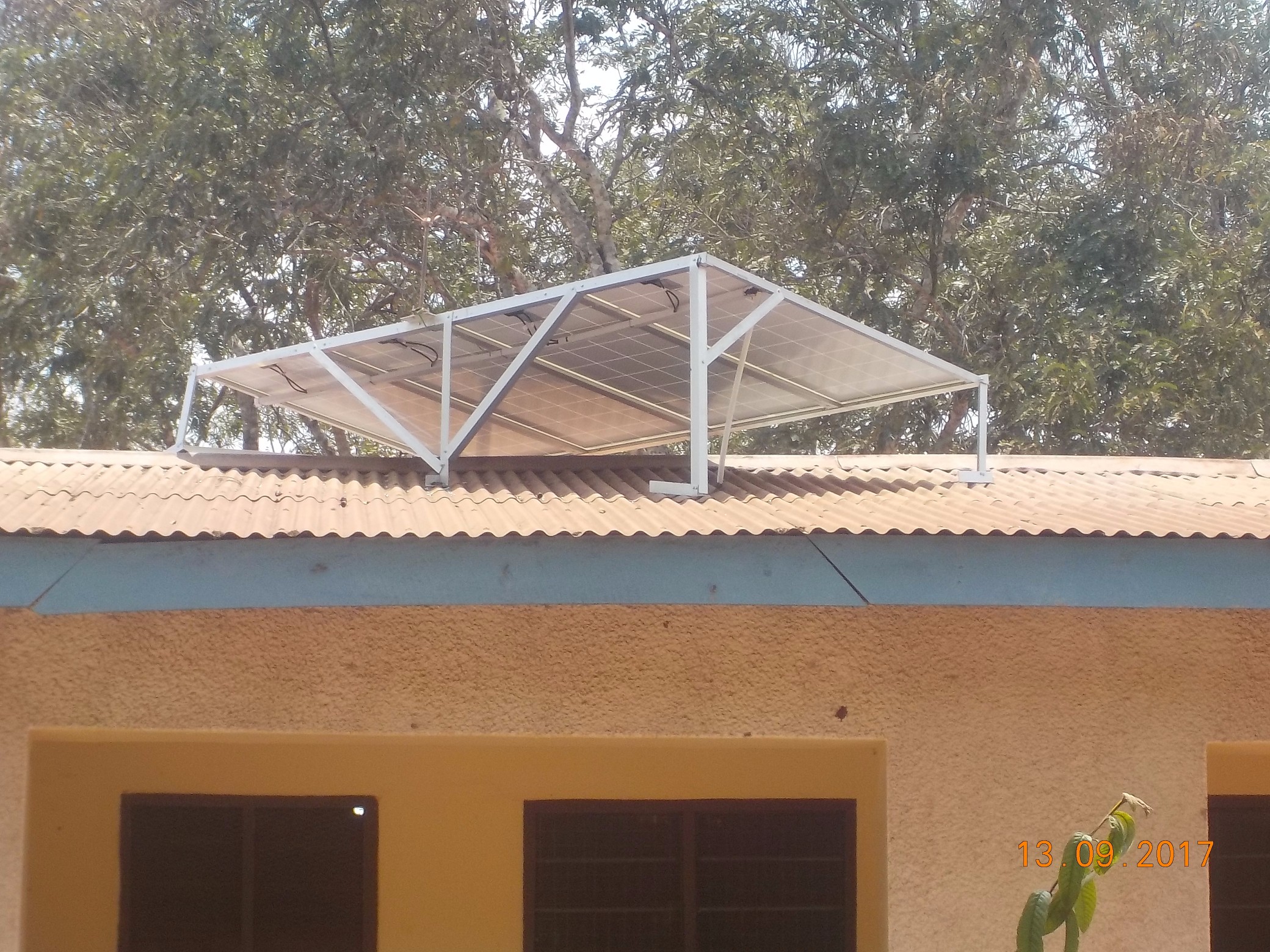
Dispensary solar photovoltaic systems installed in the phase I project
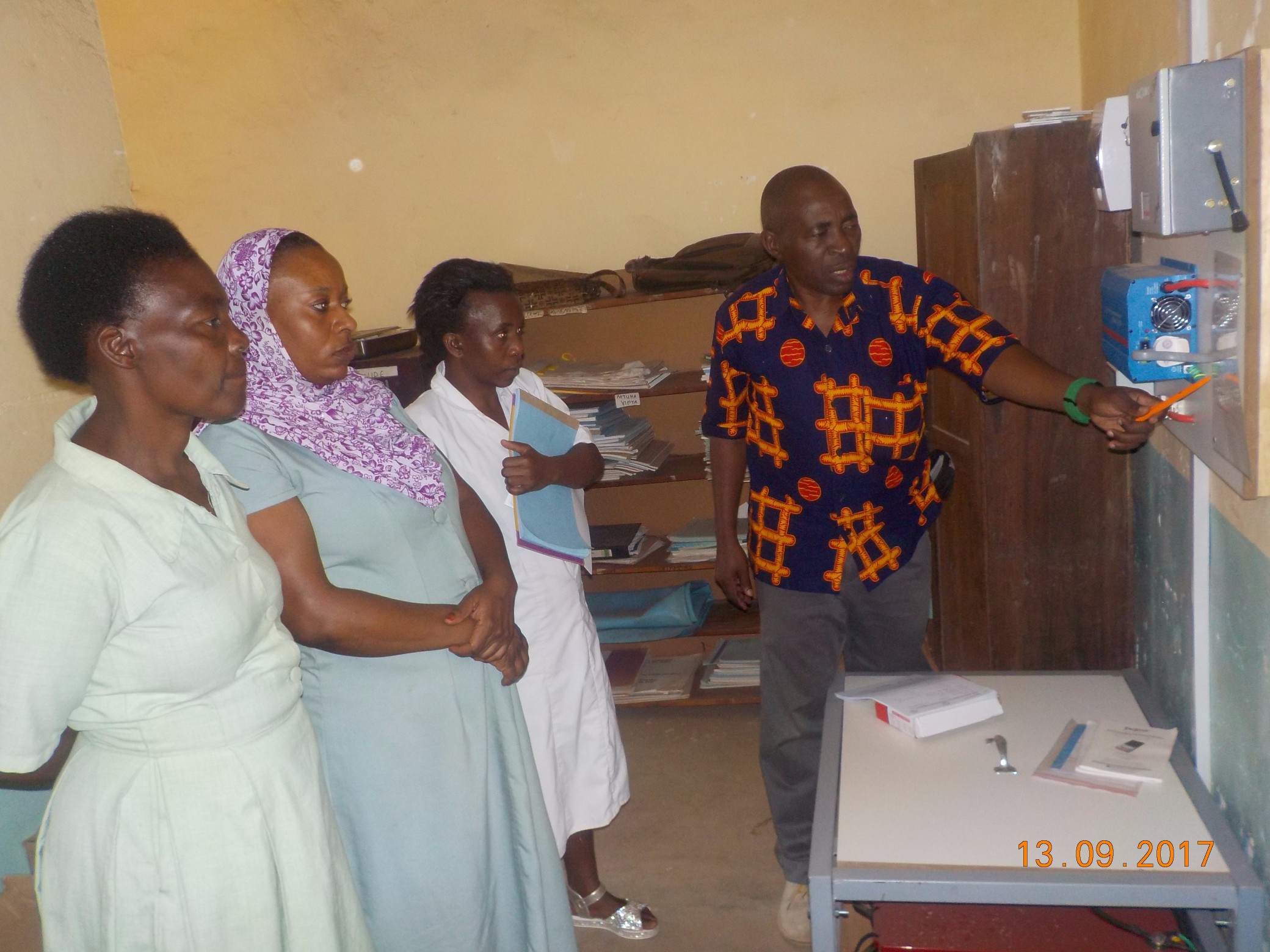
End user training during the completion of the phase I project
1.0 Installation of solar systems at 7 secondary schools, 1 health centre and 1 district hospital. In this component, there will be training programs. The training programs will consist of training 16 solar artisans to take of the installations and training end-users that systems are not misused by mistakes.
2.0 Training of women on climate change. The project will conduct a total of 8 training sessions for the women visiting clinics at the dispensaries on the subject of climate change. Women will be taught how they will contribute to the reduction of greenhouse gases.
3.0 Planting trees at Mbuyuni land. The project will plant trees at Mbuyuni hospital (Masasi District Council Hospital) to increase the carbon dioxide sink thus off-setting carbon dioxide equivalent emitted by travels of the partners between Tanzania and Germany.
4.0 Construction of the Masasi Environment Centre. The project will construct Environment Training Centre that will be used for training the public in Masasi about climate change. The centre will be run by the Masasi Town Council and powered by renewable energy technologies (solar photovoltaic plant and solar water heater).
-
Renewable Energy Mini Grid Advocacy
Tanzania's Renewable Energy Mini-Grid sector is facing the challenge of a business model with low tariffs. In July 2020, the Minister for Energy announced the tariff policy directives that ordered renewable energy mini-grid operators to abide by the national utility tariff charging TZS 100/kWh.
The tariff policy directive has resulted in companies running bankrupt and poor electricity supply services.
TAREA is leading the initiative to dialogue with the Ministry of Energy, and Energy and Water Utility Regulatory Authority (EWURA) to resolve the challenge.
The dialogue with the Government of Tanzania to create a business enabling environment started in September 2018.
On 13 December 2021, during the Public-Private Dialogue held in Dodoma, called by TAREA and EU Delegation, Minister for Energy announced that the Government of Tanzania is going to reinstate the cost-reflective tariff policy.
On 30th March 2022, during the meeting of TAREA and the Minister of Energy, Ministry announced that the energy regulator is already working on the new mini-grid tariffs.
Thanks to Sida that provides financial contribution.
-
Review and Upgrade of Sustainable Energy Explorer Tanzania
TAREA has partnered with World Resources Institute (WRI) to review and upgrade the content of the Energy Access Explorer for Tanzania
The works will include reviewing the validity of the content, adding new categories, and collecting and adding new data.
TAREA and WRI will involve private and public stakeholders who will decide what data should be presented in the explorer.
TAREA will take charge beyond the project in updating the data.
The Energy Access Explorer can be access through the button below
-
SOARING Program
Tanzania Renewable Energy Association (TAREA) has partnered with Renewable Energy Efficiency Program (REEEP), to which TAREA is a member, to implement the program of the Southern African Renewable Energy Investment and Growth (SOARING) in Tanzania. The general outcomes of the program are SOARING Fund Development and Management, SOARING Platform for Change, SOARING Training and Capacity Building, and SOARING Blended Climate/Private Finance Pathway.
The partnership for this program will operate till November 2026.
-
Solar Fishing Lights-Lake Victoria
The city of Mwanza and Wuerzburg have partnered to implement development activities in Mwanza. TAREA participates in the partnership as a renewable energy association operating in the city of Mwanza. TAREA implements the activity of replacing kerosene lanterns for fishing with solar lanterns. Fishing on Lake Victoria using kerosene lanterns has negative impacts as kerosene spills into the water. TAREA plans to scale up the activity through mainstreaming the use of solar for drying fish and promotion of tree planting.
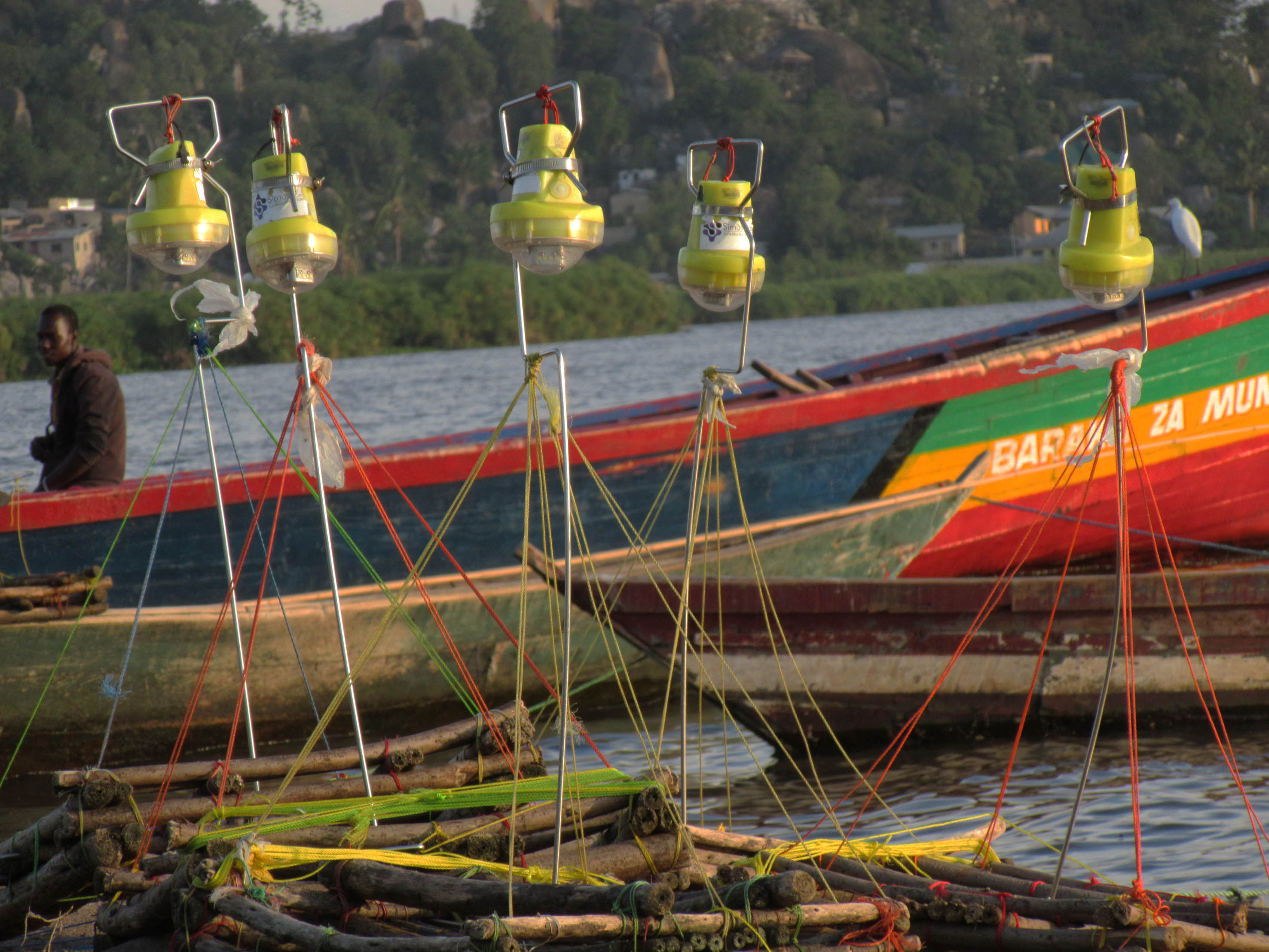 Fishing Solar Lanterns on Lake Victoria in Mwanza, Tanzania
Fishing Solar Lanterns on Lake Victoria in Mwanza, TanzaniaThe City of Wurzburg has provided funds to TAREA through Mwanza City to continue scaling up the uptake of solar fishing light in the years 2022 and 2023 The project is implemented by TAREA Lake Victoria Zone Branch.
-
SWARM E Project: Leave No One Behind
TAREA, ECOGLOBE Resources Ltd, and ELICO Foundation of Tanzania have teamed with 13 other international organizations to implement the SWARM-E Project.
SWARM E is an off-grid electrification project that aims to revolutionize clean access in Sub-Saharan Africa. The project will address the interconnected challenges of energy, water, and food productivity through innovative and sustainable solutions.
The mission of the project is to create, maintain, and scale affordable, reliable, and modern energy systems that promote sustainability and inclusivity. The SWARM Electrification model is designed to ensure that no community is left behind, fostering local energy ownership and peer-to-peer energy sharing.
The project is implemented in mainland Tanzania and Rwanda. The potential sites in Tanzania are the islands in Mkuranga District, Pwani Region.
The solution is a bottom-up modular and dynamic infrastructure called SWARM electrification (SWARM-E) where a mini-grid will be revitalized and households and businesses with solar home systems (SHS) will be interconnected as part of the grid extension via an alternating current low-voltage distribution grid.
The SWARM grid+ will also demonstrate a new e-mobility solution: a charging station for light e-mobility as it will fit the community.
The project in mainland Tanzania will be implemented on the islands to align with the national strategy of electrifying the off-grid communities using renewable energy mini-grids.
The project period is from May 2024 to April 2028.
Read the SWARM E Project Brochure
Read more information about the Tanzania Project Component here.
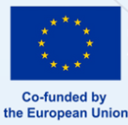
-
URBIS Foundation Partnership Projects
Tanzania Renewable Energy Association (TAREA) and URBIS Foundation of Bavaria -Germany work together to implement activities that promote access to renewable energy technologies and protect the environment.
The projects implemented are presented below.
January - December 2015
1.0 Parliamentary exhibition
TAREA conducted a renewable energy exhibition and meeting with members of parliament in Dodoma in February 2015. The activity aimed to sensitize the members of parliament on the potential of renewable energy for enabling rural off-grid areas to access sustainable modern energy. It was further aimed at advocating for lawmakers to support the campaign of asking the Government of Tanzania to reinstate VAT exemptions on solar technologies. The activity contributed to the decision of the Government of Tanzania to reinstate VAT exemptions to the solar panels, solar inverters, solar charge controllers, solar batteries, direct current lights and solar water heaters.
2.0 Radio talks
Radio talks were conducted to raise awareness in the rural off-grid communities on the potential of renewable energy technologies. Most of the radio stations that were used are the ones that have wide rural coverage. Radios that were used are: Radio Orkonerei in Babati (Maasai Radio); Passion FM in Mwanza; Radio Ukweli in Morogoro; Radio One in Dar es Salaam; and Radio Upland in Njombe.
The impact of the radio was increased uptake of solar home systems and improved fuelwood/charcoal stoves.
3.0 National Renewable Energy Day
The event took place in June 2015 in Masasi in the Mtwara region. The event aimed to increase awareness of the potential of renewable energy technologies.
The impact of the event was increased uptake of solar photovoltaic technology.
4.0 Tanzania Renewable Energy Directory 2016-17
The two years (2016-17) directory was developed to help those who need quality renewable energy services.
The impact was increased access to quality-verified solar photovoltaic products.
January - December 2016
1.0 Advocating the National Environment Management Council for Establishment of Frameworks Governing the Electronic Waste Disposal in Tanzania
Project goal: To have a formal regulatory framework controlling the disposal of electronic waste in the country.
Results: The study on the volume of solar batteries imported from 2014 to 2016 was conducted, and the Vice President's Office started developing the regulations on electronic waste recycling.
2.0 National renewable energy day 2016 in Njombe
The activity was held in Njombe from 11th to 12th November 2016. The event was held to raise awareness of renewable energy among the residents of the Njombe Region.
Project result: Increased uptake of renewable energy technologies in the Njombe region.
3.0 Networking university students in the renewable energy sector
The activity was conducted to intervene in the problem of inadequate renewable energy manpower capacity in Tanzania.
The activity was conducted at the University of Dodoma (Dodoma), Sokoine University of Agriculture (SUA), Institute of Planning and Development (Dodoma), and Nelson Mandela African Institute of Technology (Arusha), Arusha Technical Institute (Arusha) and SAUTI University (Mwanza).
The impact of the activity was increased enrolment of students pursuing renewable energy studies.
4.0 Enabling households of Malinyi access to solar systems
Malinyi village in the Morogoro region was an off-grid rural and remote location. Most households used kerosene wick lanterns for lighting. Few households that already used solar systems received rewards from relatives living in urban areas. The program of replacing kerosene wick lanterns worked through Village Cooperative Banks (VICOBAs). There were 12 VICOBAs each having 30 household members. 407 households replaced kerosene lanterns with solar lanterns.
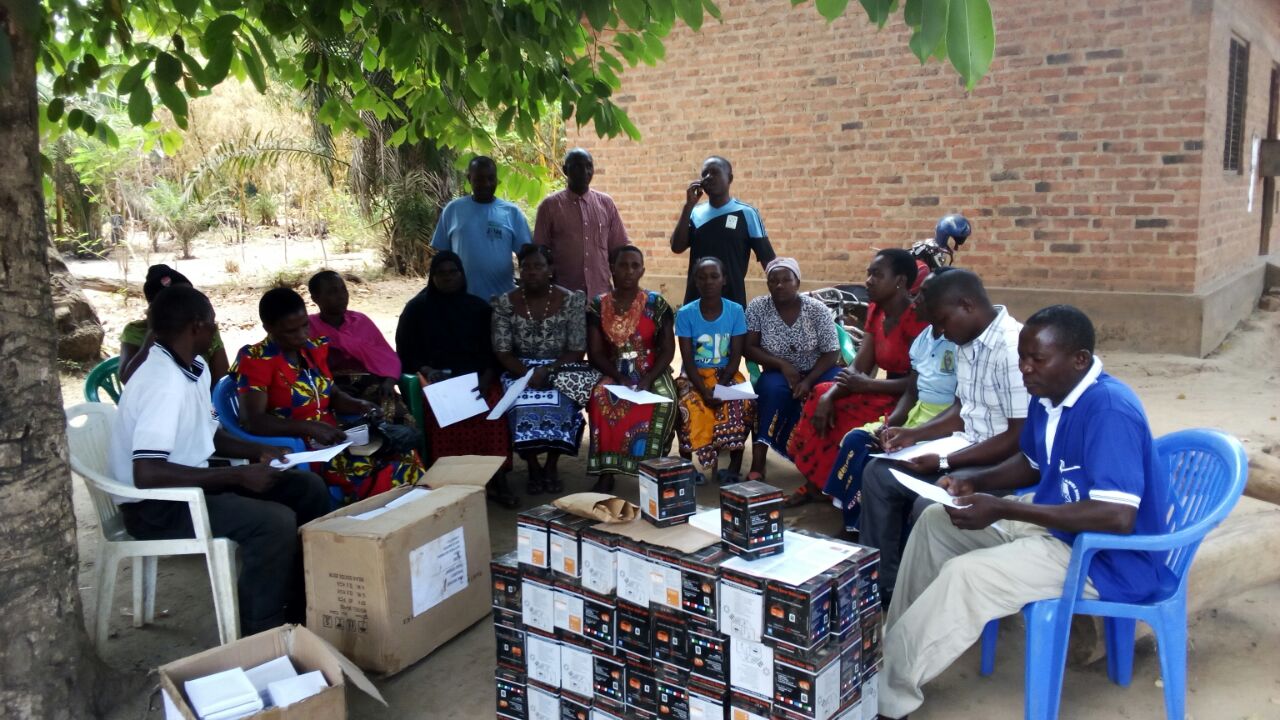
January - December 2017
1.0 Project School Program in Babati and Simanjiro Districts
Simanjiro and Babati are among the districts in Tanzania that are semi-desert. The inhabitants live on keeping cattle and growing maize and beans. Cooking energy used is biomass but its availability is limited. The sources of cooking energy used are firewood, straws and cow dung. Sources of lighting energy that are used are kerosene and straws. Kerosene is very expensive and few families can afford it. Biomass cooking energy is used in an unsustainable manner, no tree replanting is done. Due to the design of houses that have small windows, there is an impact of smoke on health. The project is aiming to raise awareness of alternative cooking equipment, lighting equipment like solar lanterns and tree replanting. Secondary school students were used as a bridge to the households.
Project results
The immediate results of the project are:
- Sensitized authorities of Babati and Simanjiro on the potential of renewable energy technologies;
- Mobilized 10 secondary schools for the project sites
- Trained 19 teachers as project coordinators
2.0 TAREA Member Need Assessment
TAREA plans the activities in a participatory manner with members. This project was conducted with the purpose of understanding members’ needs, uncovering unaddressed issues and determining the level of satisfaction of members to enable the association to evaluate itself, create members' value and improve service provision.
The project was conducted through the following organization:
1) Members’ meetings in Arusha, Mwanza and Dar es Salaam;
2) Questionnaires were used to collect members’ opinions;
3) TAREA used a consultant that Secretariat does not influence the results;
4) Members of Secretariats in Arusha, Dar es Salaam and Mwanza were not allowed to attend the meeting to enable a free atmosphere for members to present their opinions concerning the performance of Secretariats.
January - December 2018
Project name: Enabling girls of Malinyi Division-Tanzania access to quality education, safe and good school living environment
The objective of the project: To enable girls at Kipingo Secondary School in Malinyi Division to access quality education
Project Description: Project was developed to intervene in the problem of poor girls' livelihood. The project activities consisted of the installation of a solar photovoltaic system on the newly built girls’ dormitory and sensitization of the students on the potential of solar photovoltaic technology. The dormitory was constructed to provide a safe living and learning environment for the girls. Electricity guarantees the availability of lighting, allowing girls to study in the evening. The stay at the dormitory will become more attractive, preventing girls from staying in rented rooms in the local village, which has been the cause of a series of unwanted pregnancies and subsequent school drop-outs. TAREA conducted a school program using solar technology in which girls were convinced to pursue science subjects.
Results of the project; (1) 900Wp solar system was installed (2) Girls started pursuing science subjects and leading in the classrooms.
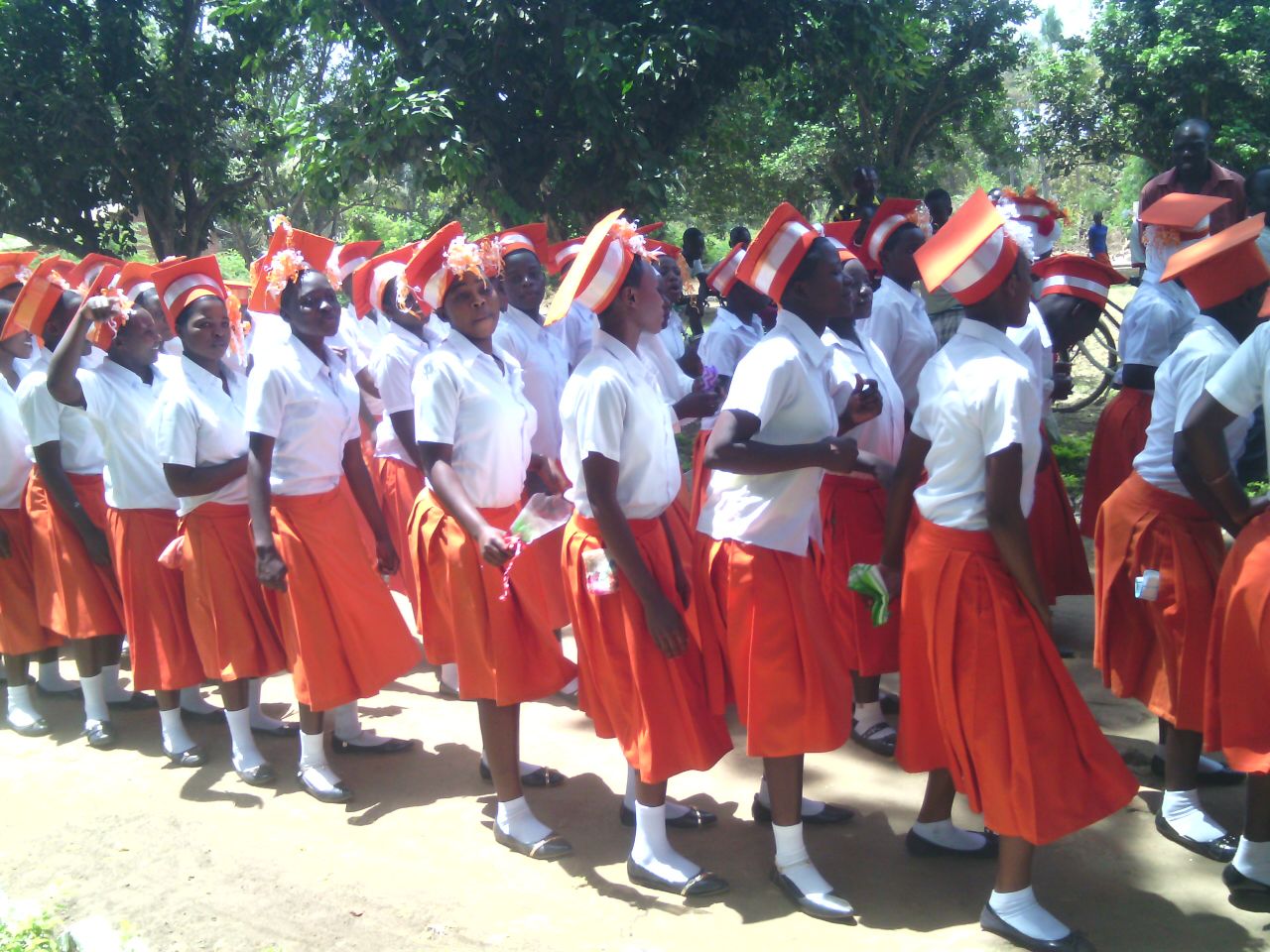
January - December 2019
Project: Training of Girls on Solar Installation and Maintenance Southern Highland Tanzania
The project was developed to intervene in the problem of girls' poverty in Southern Highland Tanzania. Most of the girls who drop out of school are forced to leave their children with their parents and go to the urban areas to work as housemaids where life ends in misery through low pay and sexually abuse. The project targeted girls coming from poor families and school drop out for various reasons including pregnancy. Project trained girls on solar installation and maintenance. Girls were trained on how to get customers. The project provided girls with tools so that they can start working just after completing the training. TAREA through its network established contacts between trained girls and retailers in the respective localities. 13 girls benefited from the project.
Impacts of the project: Girls have stayed at home in villages and are self-reliant.
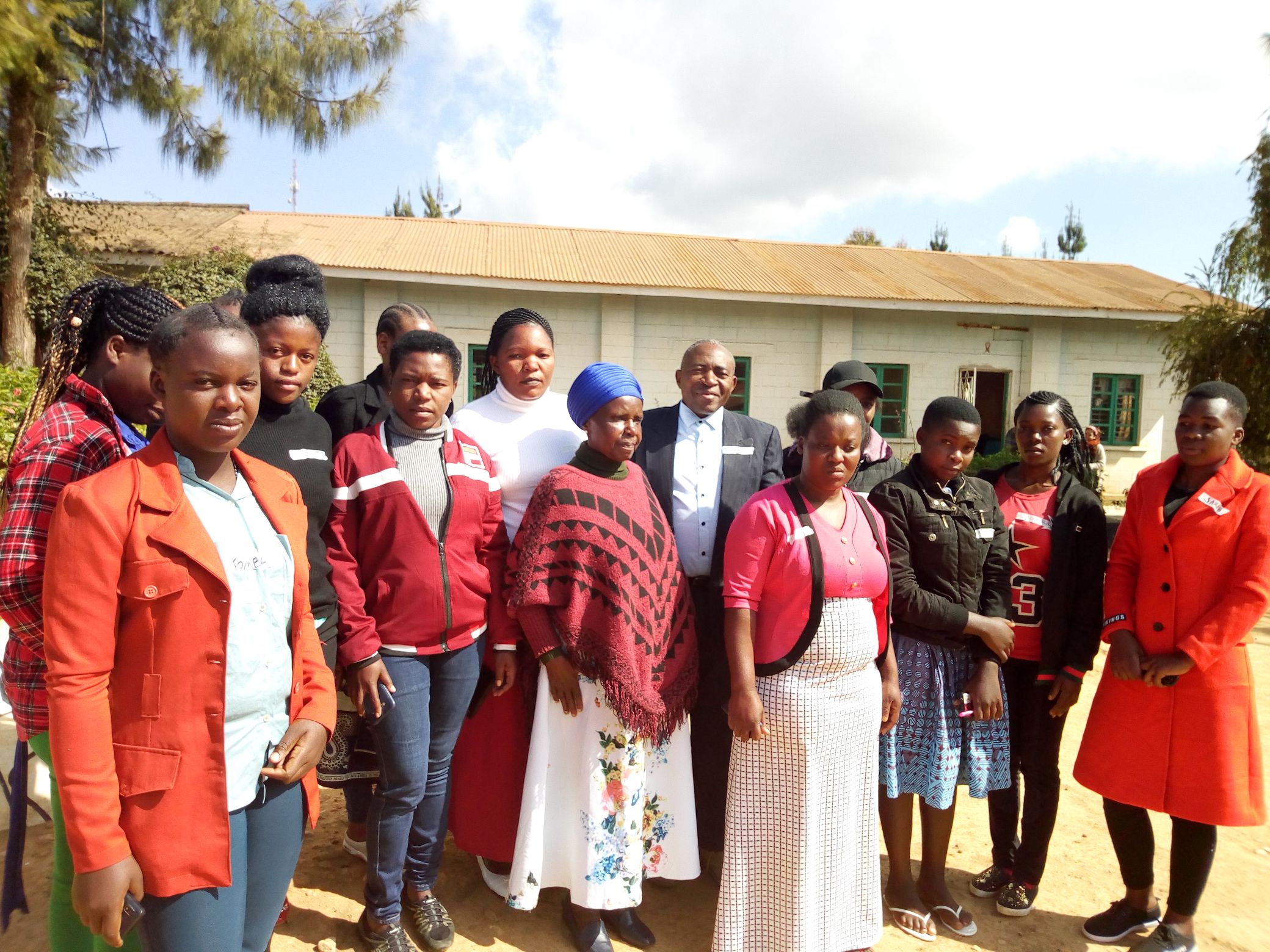
January - December 2020
Project: Installation of 1.28kWp solar photovoltaic system for girls of Preiswerk Girls Secondary School, Ifakara, Tanzania
The goal of the project is that girls of Tanzania access secondary education equally to boys in quality and number.
The problem this project wants to solve is the limited livelihood opportunities for the Tanzanian girls. The situation is caused by the limited opportunities for the girls to access quality education and a quality learning environment. The situation at Preiswerk Girls Secondary School is resulting from a lack of reliable and clean electricity. The national rates of enrollment and completion of girls in secondary education, compared to the boys is low, despite high rates of girls in primary education. In 2016 the enrolled on primary education were 4,265,714 boys and 4,373,488; while students enrolled on secondary education were 905,896 boys and 901,059 girls [The United Republic of Tanzania, President Office Regional Administration and Local Government, Pre-Primary, Primary and Secondary Education Statistics, in Brief, 2016]. Tertiary enrollment for the years of 2010, 2012, 2013 and 2014 shows the continuous higher enrolled of boys to girls as following: 2010 (girls 1.86% and boys 2.38%); 2012 (girls 2.68% and boys 5.17%); 2013 (girls 2.46% and boys 4.81%); and 2014 (girls 2.67% and boys 5.22%) [Education Policy and Data Centre https://www.epdc.org/country/tanzania]. Girls’ limited access to quality education has resulted in low girls’ literacy rate compared to the boys for the age of 15 to 24: 1988 girls 77.87% and boys 86.2%; 2002 girls 76.2% and boys 80.92%; 2010 girls 72.77% and boys 76.49%; 2012 girls 84.85% and boys 87.17%; and 2015 girls 84.64% and boys 87.01% [http://www.uis.unescop.org/country/Tanzania].
The school is located in the off-grid area, 10km from the possible point of connection to the national grid. Extending the grid to the school will cost about Euro 90,318. The intervention will be realized through the installation of a solar photovoltaic system with storage and light-emitting diode (LED) bulbs, and sensitize students and teachers on the potential of solar technology, and good practices of using the solar photovoltaic system. Further, the project will assist teachers of Preiswerk Girls Secondary School to establish a solar fund from the available finance at the school.
The solar photovoltaic system will replace the diesel generator that is polluting and costly to the school. The diesel generator in place, KIPOR KDE12STA3 consumes 5,256litres/year (4hours run a day) costing TZS 11,563,200 [=Euro 4,547]/year emitting 14,086KgCO2/year.
LED bulbs will replace the conventional tube lights and decrease the energy consumed for lighting from 15.47kWh/day to 3.13kWh/day.
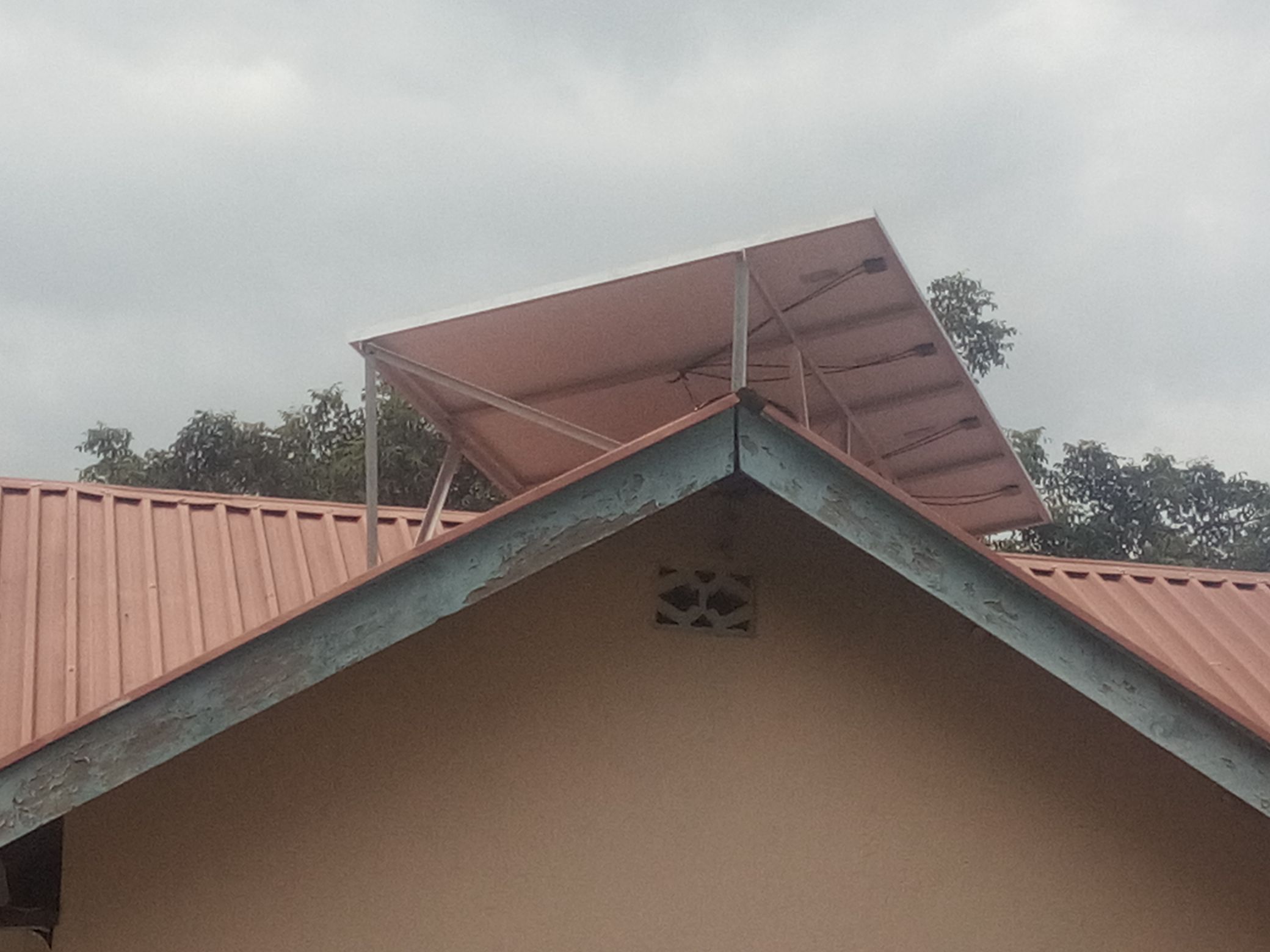
January - December 2021
Project: Enabling Sustainable Use of Biomass for Cooking at Public Secondary Schools in Malinyi District
The project objective is to enable the Malinyi secondary schools and communities to use solid biomass for cooking sustainably. The objective will be realized by introducing efficient and clean fuelwood stoves at the 2 public secondary schools, and tree planting. Further, the community will be introduced to and sensitized to the importance of using efficient cooking stoves and planting trees for the fuelwood.
If the project will be successful at the two schools, it will be scaled up to other schools within Malinyi District.
Photo 1 shows the current kitchen and photo 2 shows the new stoves.
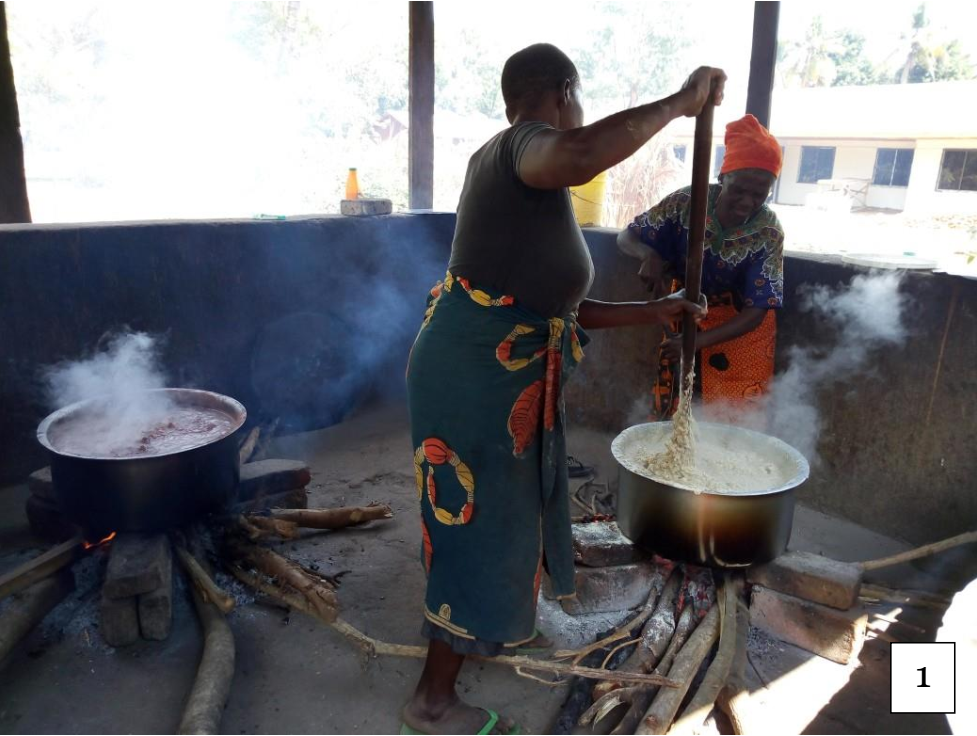
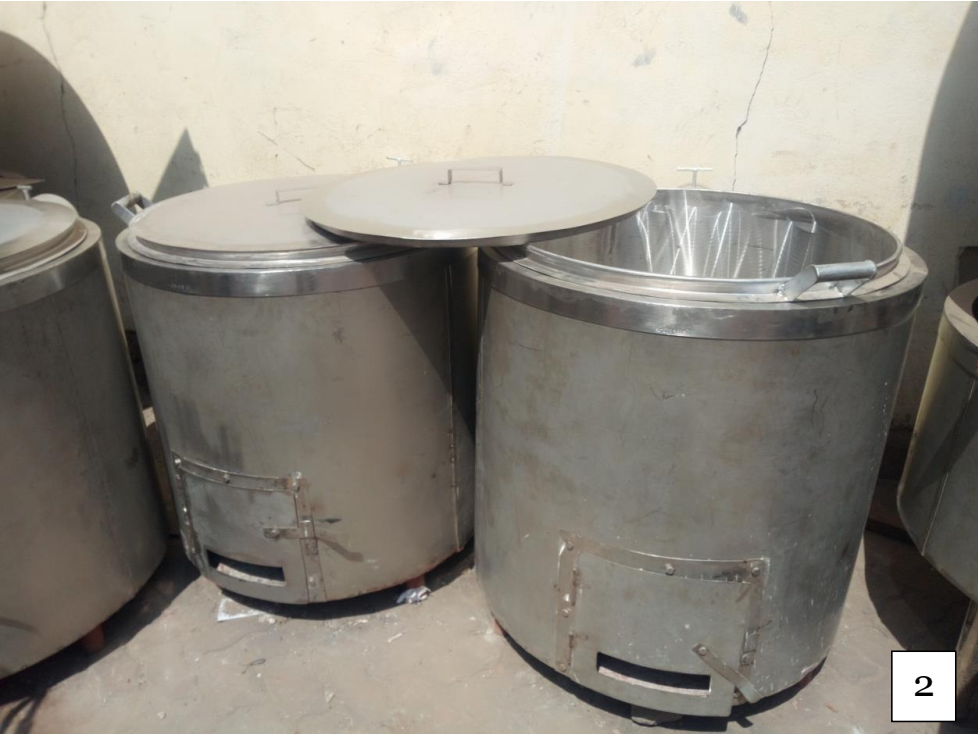
January - December 2022
TAREA and its German Partner URBIS Foundation are implementing the project “Enabling Girls of Preiswerk Secondary School in Ifakara Tanzania access clean water sustainably”. The project will be implemented in Ifakara, Morogoro region in Tanzania. The school is using a diesel generator for pumping water for the girls. The use of a diesel pump at the school costs EUR 5002/ year and emits 14,086KgCO2/year. When there are no funds to buy diesel, girls collect water from the river that has deadly crocodiles. The project will install a solar water pumping system to pump water from a borehole of 80m. The installation will consist of a ground-mounted solar array of 2.24kWp and a submersible Grundfos pump.
The project will result in 240 girls getting a reliable supply of water, 20m3/day, which will increase the level of hygiene and protect girls from infectious diseases like COVID-19; locally produced vegetables; increased planted trees; avoided 14,086KgCO2/year; reduced costs of water pumping; increased safety of girls; increased awareness of the potential of solar water pumping technology to the education sector and the public in Ifakara.
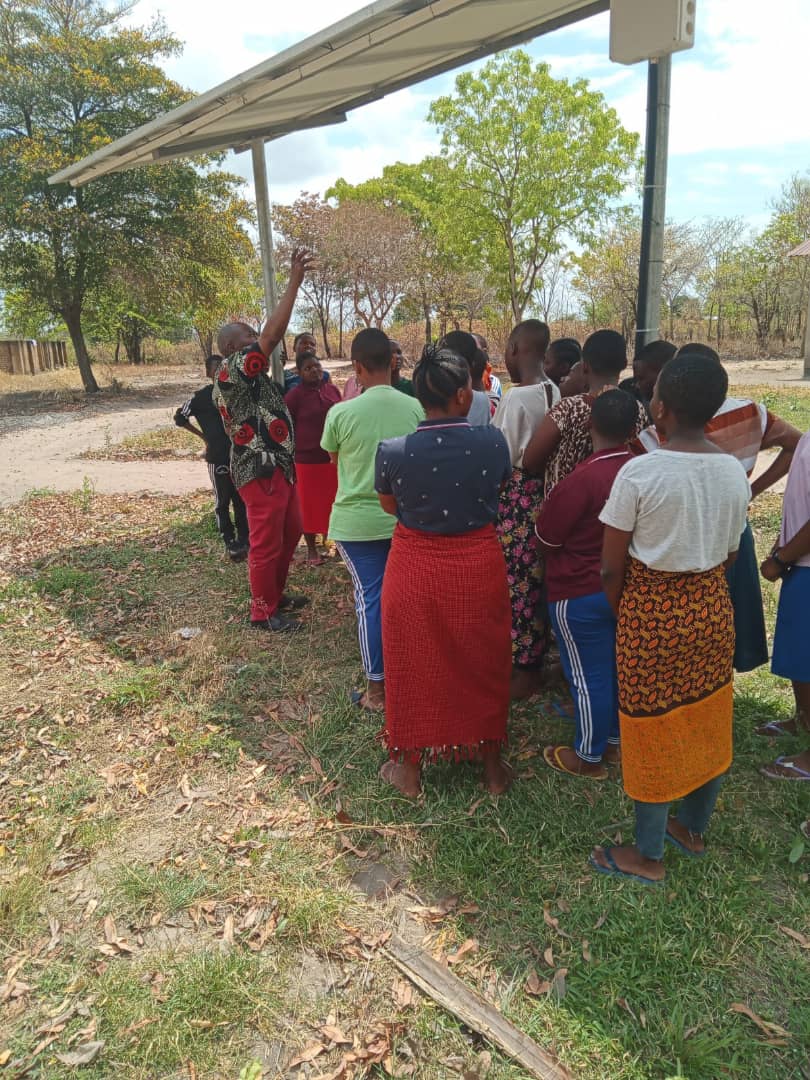
January 2023 - December 2024
TAREA supports Herrnhuter Missionshilfe e.V to establish solar training at the vocational centres of the Moravian Church in Tanzania of Mbeya, Kakozi and Songea.
TAREA will train the trainers and evaluate the trainers on conducting training and the quality of the workmanship of the youth that will graduate from the training centres.
January 2024 - December 2026
TAREA supports Masasi Folks Development College to enable it to conduct solar photovoltaic artisanal training for the Mtwara and Lindi region youth and women. TAREA implements the project titled "Facilitate Establishment of the Vocational Solar Photovoltaic Training Laboratory at Masasi Folks Development College in Mtwara Region Tanzania"
The project will result in increasing youth employment and access to electricity.
